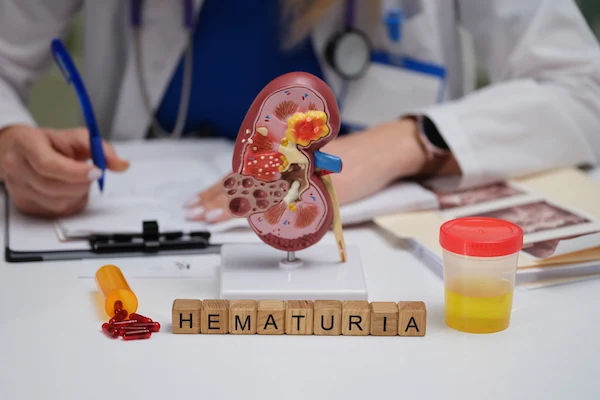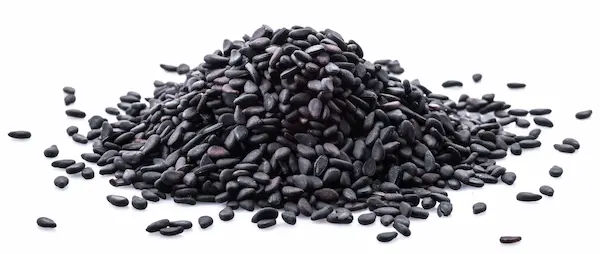How to Reduce Total Leukocyte Count (TLC) in Blood
Learn how to reduce Total Leukocyte Count (TLC) in blood with natural remedies, lifestyle changes, and medical treatments. Discover effective ways to maintain healthy WBC levels.

Written by Dr.Sonia Bhatt
Last updated on 13th Jan, 2026

Introduction
Total Leukocyte Count (TLC) is a crucial marker in medical diagnostics, providing important information about the health of your immune system. To maintain healthy levels of TLC for optimal well-being, It is important to know what TLC is, the causes of elevated TLC, how to lower it naturally and medically, and how lifestyle changes can help you.
Understanding Total Leukocyte Count (TLC)
Total Leukocyte Count (TLC) measures the number of white blood cells (WBCs) present in a blood sample. White blood cells are an important part of our immune system that help the body fight off infections, inflammation, and foreign invaders. The normal range for TLC varies depending on factors such as age, sex, and health conditions, but it generally falls between 4,000 and 11,000 WBCs per microlitre of blood.
Leukocytes, or white blood cells, are part of the body’s defence mechanism. They identify and fight off pathogens such as bacteria, viruses, and fungi. There are several types of leukocytes, each with a specific role in the immune response:
Neutrophils: Combat bacterial infections.
Lymphocytes: Help fight viral infections and assist in immune regulation.
Monocytes: Assist in the removal of dead or damaged cells and support immunity.
Eosinophils: Address parasitic infections and allergic reactions.
Basophils: Release histamines and are involved in allergic responses.
These cells are produced in the bone marrow and circulate in the bloodstream, providing crucial defence against harmful agents.
Common Causes of Elevated TLC
Several factors can trigger an elevated TLC, including infections, inflammation, stress, allergies, and certain chronic conditions,
Infections and Inflammation: The most common cause of elevated TLC is infection. When the body encounters a bacterial, viral, or fungal infection, the immune system activates and releases more white blood cells to fight off the pathogens. Conditions like pneumonia, urinary tract infections (UTIs), and other infections can cause the TLC to rise significantly.
Stress and Lifestyle Factors: Chronic stress, lack of sleep, and poor lifestyle choices can also cause the body to produce excess white blood cells (WBCs). Stress triggers the release of a hormone called cortisol, which influences the immune system and can increase WBC production. Poor diet, lack of exercise, and excessive smoking or alcohol consumption can all contribute to elevated TLC levels.
Autoimmune Disorders: The immune system erroneously attacks the body’s healthy cells in autoimmune conditions. Diseases like rheumatoid arthritis, lupus, and inflammatory bowel disease (IBD) can lead to an elevated TLC. These conditions cause chronic inflammation, which prompts the body to produce more white blood cells in response.
Blood Disorders: Certain blood disorders, such as leukaemia, can cause a significant increase in TLC. Leukaemia is a type of cancer which affects the bone marrow, leading to the overproduction of abnormal white blood cells. Other blood disorders, like myeloproliferative disorders, can also result in elevated TLC levels.
Symptoms of Elevated TLC
Although high TLC can be indicative of an underlying issue, it is often asymptomatic. However, when the cause of the elevated TLC is an infection or disease, the following symptoms may be present:
Fever
Fatigue
Swollen lymph nodes
Unexplained weight loss
Pain or discomfort in specific areas of the body
Skin rashes or inflammation:
If you experience any of these symptoms, it is important to consult a healthcare professional for further evaluation.
Diagnostic Tests for High TLC
Regular check-ups are important to ensure your TLC remains in a healthy range. Blood tests are the most effective way to monitor your TLC and assess whether your lifestyle changes are having the desired effect. These check-ups will also allow your healthcare provider to track any changes and intervene if necessary.
The primary test for measuring TLC is a Complete Blood Count (CBC). This test measures the number of red blood cells, white blood cells, platelets, and other components in your blood. A CBC can help doctors assess the overall health of your immune system and detect any abnormalities in your white blood cell count.
Additional tests may be needed to determine the cause if your TLC is elevated. These may include:
Blood cultures to identify infections
Autoimmune panels to check for inflammatory or autoimmune disorders
Bone marrow biopsy In some cases, additional tests like bone marrow biopsy or imaging studies may be needed to identify the underlying cause of elevated leukocytes.
Find Out Your Total Leukocyte Count
Natural Ways to Reduce TLC
There are several ways to reduce TLC naturally like a healthy diet, exercise, and stress management.
1. Adopting a Healthy Diet
A balanced and nutrient-rich diet is essential for maintaining a healthy immune system. Certain foods can help modulate the immune response and reduce inflammation, potentially lowering TLC levels. Consider including the following in your diet:
Antioxidant-rich foods: Such as berries, leafy greens, and nuts.
Omega-3 fatty acids: These are found in fish like salmon, flaxseeds, and walnuts and have anti-inflammatory properties.
Probiotic-rich foods: Yoghurt, kefir, fermented vegetables and similar foods support gut health and modulate immune function.
Avoiding processed foods, excessive sugar, and trans fats is also important to reduce inflammation and stress on the immune system.
2. Regular Exercise and Stress Management
Regular physical activity helps regulate the immune system and maintain a healthy TLC. Exercise promotes blood circulation, reduces stress, and supports overall immune function. Aim for at least 30 minutes of moderate exercise most days of the week.
Managing stress is equally important. Chronic stress can lead to an overactive immune response and elevated TLC. Practising relaxation techniques like deep breathing, yoga, or mindfulness meditation can help reduce stress and improve overall health.
3. Hydration and Its Benefits
Staying well-hydrated supports the body’s detoxification processes and reduces inflammation. Water helps flush out toxins, supports circulation, and ensures your immune system functions optimally. Aim to drink at least 8 glasses of water daily if you’re physically active.
Medical Treatments for Reducing TLC
If your elevated TLC is linked to an underlying infection or inflammatory condition, your doctor may prescribe medications such as antibiotics, antivirals, or anti-inflammatory drugs to address the issue. Steroids and other immunosuppressive medications may be used to manage autoimmune disorders.
Reducing TLC often involves treating the root cause. For example, antibiotics or antivirals may be required if an infection is present. In cases of blood disorders, chemotherapy, or other treatments, such as bone marrow transplants, may be necessary to regulate white blood cell production.
Lifestyle Changes to Maintain Healthy TLC Levels
Several changes in lifestyle can help lower the WBC count; the following are some important changes that can be incorporated into your routine life.
Sleep and Rest: Adequate rest is important for a healthy immune system. Lack of sleep can damage immune function and contribute to elevated TLC levels. Aim for 7-9 hours of quality sleep each night to support your body’s ability to regulate white blood cell production and maintain overall health.
Avoiding Substances That Affect Immunity: Certain substances, like tobacco and excessive alcohol, can have a negative impact on your immune system. Smoking and heavy drinking can cause inflammation and weaken your body’s ability to regulate TLC levels. Limiting or avoiding these substances is essential for long-term health.
When to See a Doctor?
If you have elevated TLC levels with symptoms like fever, unexplained fatigue, weight loss, or swollen lymph nodes, it’s necessary to consult a healthcare provider. A healthcare provider can perform the necessary tests, determine the cause of your high TLC, and recommend appropriate treatment options.
Preventive Measures for Optimal TLC
Regular health check-ups are important for early detection and management of conditions that could lead to an elevated TLC. A routine checkup with necessary blood tests can help to monitor TLC levels and identify any potential problems before they become serious. Vaccinations are crucial for preventing infections that can lead to an elevated TLC.
Conclusion
To reduce and keep your Total Leukocyte Count (TLC) at healthy levels, it is important to make a few changes to your lifestyle. These changes include changing in diet, managing stress levels, and regular exercise. By adopting these healthy habits, you can help your immune system function better and improve your overall health. It’s important to note that TLC is only one part of your health, so it’s critical to take care of other aspects of your well-being as well. Keeping TLC in check, along with other healthy practices, will help ensure you stay well in the long run.
Consult Top Haematologists
Consult Top Haematologists

Dr Vijaykumar Shirure
Haematologist
8 Years • MBBS, MD, DM (Clinical Hematology), Fellow (Hemato-oncology), Fellow (Bone Marrow Transplantation)
Ahmedabad
Apollo Hospitals Gandhinagar, Ahmedabad
Dr. Velu Nair
Haematologist
36 Years • MBBS, MD (Med.), FRCP, FACP, FAMS, FICP, FIACM, FUICC, FISHTM
Ahmedabad
Apollo Hospitals Gandhinagar, Ahmedabad
(25+ Patients)

Dr. Thorana Prakash M
General Physician
2 Years • MBBS
Bengaluru
PRESTIGE SHANTHINIKETAN - SOCIETY CLINIC, Bengaluru
Dr Sumanth R
General Physician
2 Years • MBBS
Bengaluru
PRESTIGE SHANTHINIKETAN - SOCIETY CLINIC, Bengaluru

Dr Abilash Jain
General Physician/ Internal Medicine Specialist
12 Years • MBBS,DNB(FM),MNAMS,FIAMS,CCGMG(GERIATRICS),DGM (GERIATRICS),PGCD(DIABETES,BOSTON UNIVERSITY),FID(DIABETICS UK)CCEPC(PALLIATIVE CARE),CCCC(CRITICAL CARE)
Visakhapatnam
Apollo Clinic Vizag, Visakhapatnam





